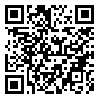BibTeX | RIS | EndNote | Medlars | ProCite | Reference Manager | RefWorks
Send citation to:
URL: http://journal.jmu.ac.ir/article-1-78-en.html
2- Department of Psychology, Faculty of Humanities, Payame Noor University, Tehran, Iran
3- Department of Psychology, Faculty of Humanities, Payame Noor University, Tehran, Iran.
Introduction: patients who suffer from post-traumatic stress disorder (PTSD), show abnormal physiological reactions to stressful events. The aim of the present study was to compare the efficacy of cognitive processing therapy with schema-based cognitive therapy on biological variables in war veterans with chronic post-traumatic stress disorder.
Methods: The present research was semi-experimental, in which pre- and post-test design and follow-up with control group were used. The study's population consisted of all Iran-Iraq war veterans who were living in Kermanshah Province in 2014; and who suffered from chronic PTSD. From the statistical population, 34 war veterans were selected based on purposive sampling and inclusion criteria and they were assigned to 3 groups randomly. Participants were undergone 12 sessions of group therapy using cognitive processing therapy and 14 sessions of Young's schema therapy and Follow-up stage started 1 month after treatments termination. Data was collected by The Post Traumatic Stress Disorder Checklist-Military (PCL- M), Structured Clinical Interview for DSM-IV-TR axis-I Disorders and digital barometer and thermometer were used. Data was analyzed by multivariate repeated measures analysis of variance, with 0/95 confidence level and IBM SPSS22 software was used for data processing.
Results: Results indicated that the average scores on the posttest and follow-up of the test groups in comparison with the control group in dependent variables were significantly different (05/0> P). Also, Sidack test as a PostHoc test, showed no significant difference between the two methods in reduction of the biological variables (P>0/05).
Conclusion: Cognitive processing therapy, and schema-based cognitive therapy can be applied to improve the physiological symptoms of post-traumatic stress disorder.
Keywords: post-traumatic stress disorder, war veterans, cognitive processing therapy, schema therapy, biological variables
Received: 2016/10/4 | Accepted: 2016/12/5 | Published: 2016/12/20
| Rights and permissions | |
 |
This work is licensed under a Creative Commons Attribution-NonCommercial 4.0 International License. |



